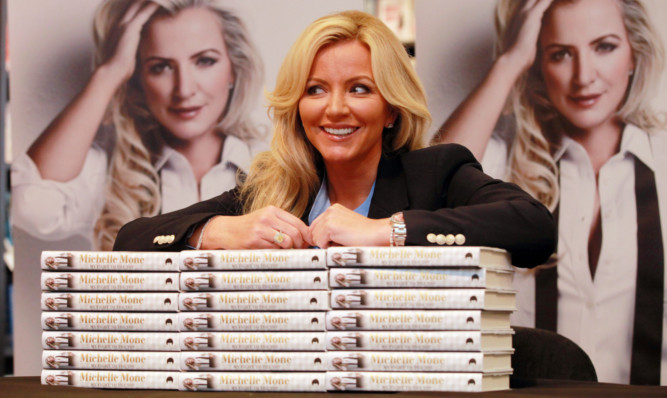If you are known as Scotland’s Bra Queen, it’s probably quite hard to keep a low profile. All the same, Ultimo boss Michelle Mone does seem to have a knack for self-publicity that ensures she is rarely out of the news.
In the 20 or so years her Glasgow-based lingerie company has been a fixture in the retail world, her personal ups and downs have played out in the nation’s press like a soap opera, to the point where some of us, on seeing her grab yet another headline, have sighed uncharitably, “not Michelle Mone again”.
However, her latest foray into the limelight is different and should concern all Scots, whether we are fans or not of her and her products.
Mone has announced she is leaving her beloved home city and her country to start a new life in England. As a tycoon with a global business it makes sense for her to live in London but better access to international markets is not the reason for her departure.
Online abuse
She is, she said over the weekend, being forced out by the abusive supporters of independence who have subjected her to online attacks since she came out in favour of the Union.
Writing in a Sunday newspaper, she said she loved Scotland and had been happy here until last year’s referendum.
“I found myself caught up in a growing and extremely vitriolic social media hate campaign after becoming one of only a few business leaders to come out in favour of both nations remaining together,” she said. “For the first time, I didn’t feel safe in Scotland.”
She criticised SNP leader Nicola Sturgeon for failing to rein in the more militant Nationalists who, Mone claims, have turned the country into a bitter and divided nation, where “success is not to be applauded any more, apparently but attacked” and “where free speech is gradually being crushed and enterprise is despised”.
She said since relocating south, she felt a weight had been lifted from her shoulders.
One business leader will not necessarily be missed by Scotland but a drain of the kind of entrepreneurial spirit that Mone represents would soon bring our economy to its knees.
The SNP has had a testy relationship with the business community and last week Sturgeon got short shrift from company bosses when she tried to coax them to sign up to her party’s left-wing agenda.
They sounded distinctly underwhelmed by her voluntary Scottish Business Pledge which commits companies to paying higher than the minimum wage, banning zero hour contracts and investing in “internationalisation”.
Don’t “get” business
Ruth McKay, chairwoman of the Edinburgh branch of the Federation of Small Businesses, suggested that Sturgeon does not “get” business.
Other business leaders were concerned that firms who refused to sign the pledge, for example because they cannot afford the Living Wage, would be discriminated against by the Scottish government.
Tim Allan, president of Dundee and Angus chamber of commerce, added: “What are the implications for companies that don’t find themselves able to sign up to that business pledge? Is the government going to sign up to some sort of preferential system for those who do sign up to that policy?”
He said his members wanted Sturgeon to give “real substance” on issues such as business rates, which the Scottish government has so far refused to review despite them being overhauled in England.
This is not the first time Scottish firms have worried about discrimination for not toeing the SNP line.
The Nationalists waged war on business last year, through the official channels of the CBI and through routine intimidation and it is no surprise that businesses see the pro-independence movement as inhospitable to enterprise.
Gavin Hewitt, the former head of the Scotch Whisky Association, revealed last week that more than 100 of Scotland’s business leaders were reluctant to speak out against independence last year because they feared repercussions from the SNP.
“I know people in business who have experienced considerable pressure from the SNP,” he said. “They were told in no uncertain terms by ministers that if they came out against independence, they should expect that existing contracts would not be renewed.”
We need enterprise
Soon, under further devolution powers, Scotland will be able to set its own income taxes and if the SNP had its way, there would be full fiscal freedom, with no safety net from London.
However, the separatists seem to have overlooked the fact that economic independence relies not just on a generous public purse but on a thriving private sector.
Michelle Mone may be the most vocal of the disgruntled entrepreneurs turning their backs on Scotland but she is unlikely to be a lone voice while there is a climate of mistrust here between those who generate wealth and those who spend it.
